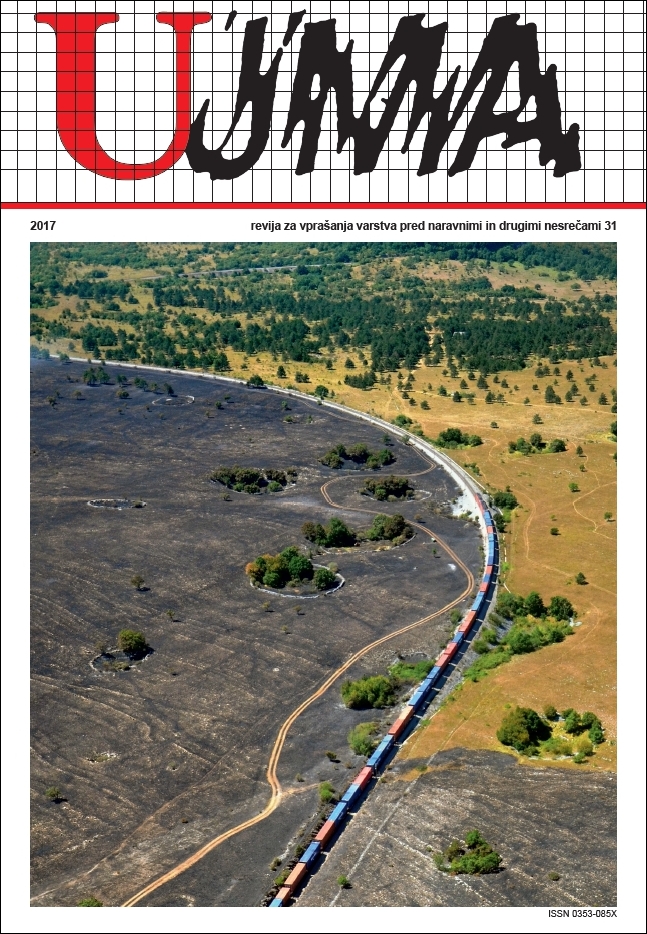MEDNARODNA DOKTORSKA POLETNA ŠOLA V OKVIRU PROJEKTA ERASMUS+ VAROVANJE OKOLJA IN NARAVNE NESREČE
Povzetek
Univerza v Ljubljani je skupaj z Univerzo v Brescii (Italija) in Univerzo BOKU z Dunaja (Avstrija) ter produkcijskim podjetjem Piktorama, d. o. o., uspešno izvedla prvo mednarodno doktorsko poletno šolo v okviru projekta Erasmus+ Varovanje okolja in naravne nesreče. Poletna šola je bila izvedena po metodi mešanega učenja in je potekala prvi teden med 27. junijem in 3. julijem 2016 z učenjem na daljavo z multimedijsko podporo ter naslednja dva tedna med 4. in 17. julijem 2016 kot klasično poučevanje v Ljubljani. Poletne šole se je udeležilo 20 udeležencev iz sedmih različnih evropskih držav in prav toliko različnih univerz.
Literatura
Avsec, S., 2009. »Blended learning« kot uspešna oblika odprtih učnih sistemov pri obravnavi okoljskih vsebin ravnanja z odpadki. V: Orel, M. (ur.). Mednarodna konferenca Splet izobraževanja in raziskovanja z IKT - SIRIKT 2009, Kranjska Gora, Arnes, 263–270.
Benbunan-Fich, R., in Hiltz, S. R., 1999. Impacts of asynchronous learning networks on individual and group problem solving: A field experiment. J. Group Decision and Negotiations, 8(5): 409–426.
Brilly, M., Nilay, D., 2015. Program magistrskega študija za obvladovanje poplav. Ujma, 29: 383–384.
Goodison, T., 2003. Integrating ICT in the classroom: a case study of two contrasting lessons. British Journal of Educational Technology, 34: 549–566.
Graham, C. R., 2006. Blended learning systems: Definition, current trends, and future directions. V: C. J. Bonk & C. R. Graham (Eds.), The handbook of blended learning: Global perspectives, local designs. San Francisco: JosseyBass/Pfeiffer, 3–21.
Haytko, D. L., 2001. Traditional versus hybrid course delivery systems: A case study of undergraduate marketing planning courses. Marketing Education Review, 11(3): 27–39.
Kozma, R. in Anderson, R., 2002. Qualitative case studies of innovative pedagogical practices using ICT. Journal of Computer Assisted Learning, 18, 4: 387–394.
Mikulecky, L., 1998. Diversity, discussion, and participation: Comparing Web-based and campus-based adolescent literature classes. Journal of Adolescent and Adult Literacy, 42(2): 84–97.
Poje Jovičić, N., 2014. QuestCity – Z igro do znanja. Ujma, 28, 293–294.
Reay, J., 2001. Blended learning – a fusion for the future. Knowledge Management Review, 4(3): 6.
Rooney, J. E., 2003. Blending learning opportunities to enhance educational programming and meetings. Association Management, 55(5): 26–32.
Sarkar, S., 2012. The Role of Information and Communication Technology (ICT) in Higher Education for the 21st Century. The Science Probe. 1: 30–40.
Šraj, M., Brilly, M., 2012. E-clasrooms at Hydrology courses. V: Urban Drainage Modelling : proceedings of the Ninth International Conference on Urban Drainage Modelling, Belgrade, 4.–6. september 2012. Belgrade: Faculty of Civil Engineering, 1–8.
Thi Thai, N. T., De Wever, B., Valcke, M., 2017. The impact of a flipped classroom design on learning performance in higher education: Looking for the best »blend« of lectures and guiding questions with feedback. Computers & Education, 107: 113–126.
Wei, P., H.-C. in C.-Y. Huang, 2013. Blended lesrning design and teaching strategies: Case of the program planning course. In Transculture blended learning and teaching in postsecondary education, (ur.) E. J. Francois. United States of America: IGI Global, 110–126.
Prenosi
Objavljeno
Številka
Rubrike
Licenca

To delo je licencirano pod Creative Commons Priznanje avtorstva-Nekomercialno-Brez predelav 4.0 mednarodno licenco.
Članki so na voljo javnosti pod licenco Creative Commons Priznanje avtorstva-Nekomercialno-Brez predelav 4.0 Mednarodna (CC BY-NC-ND 4.0).


